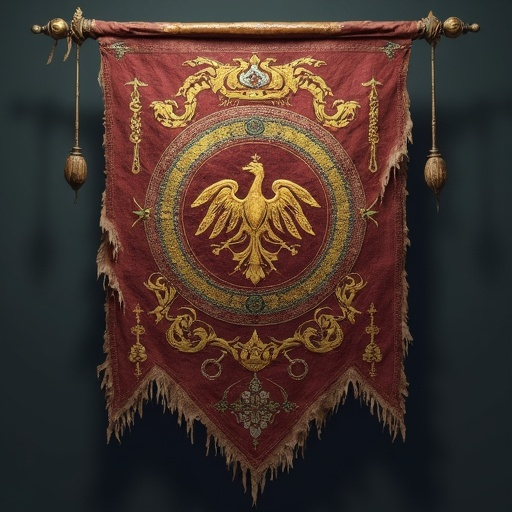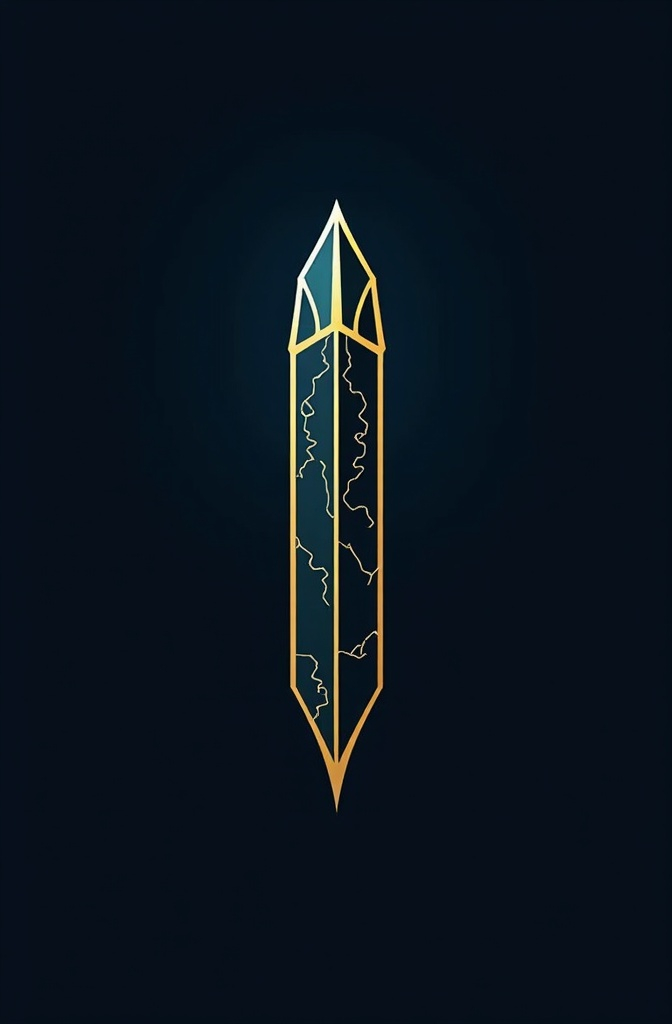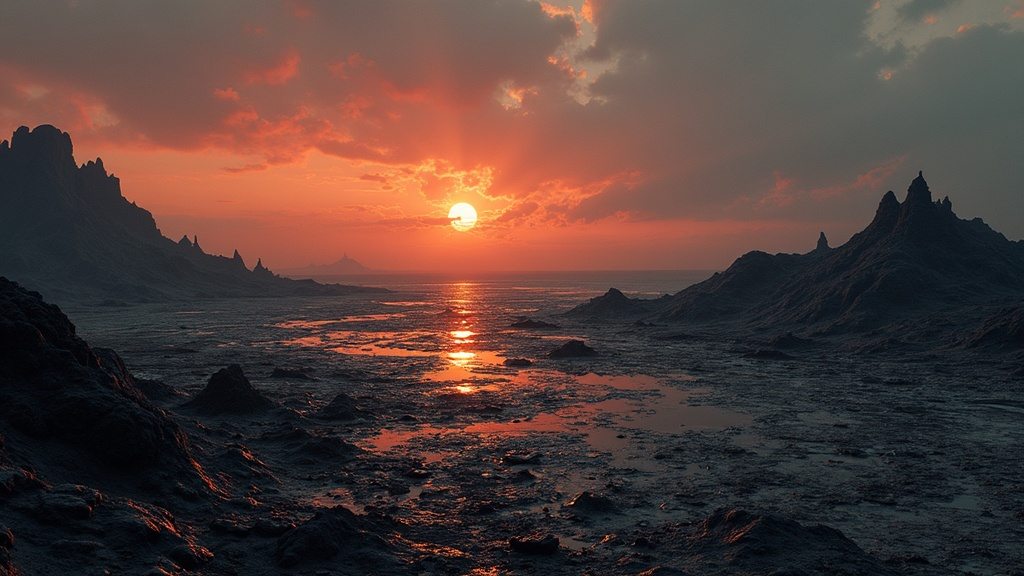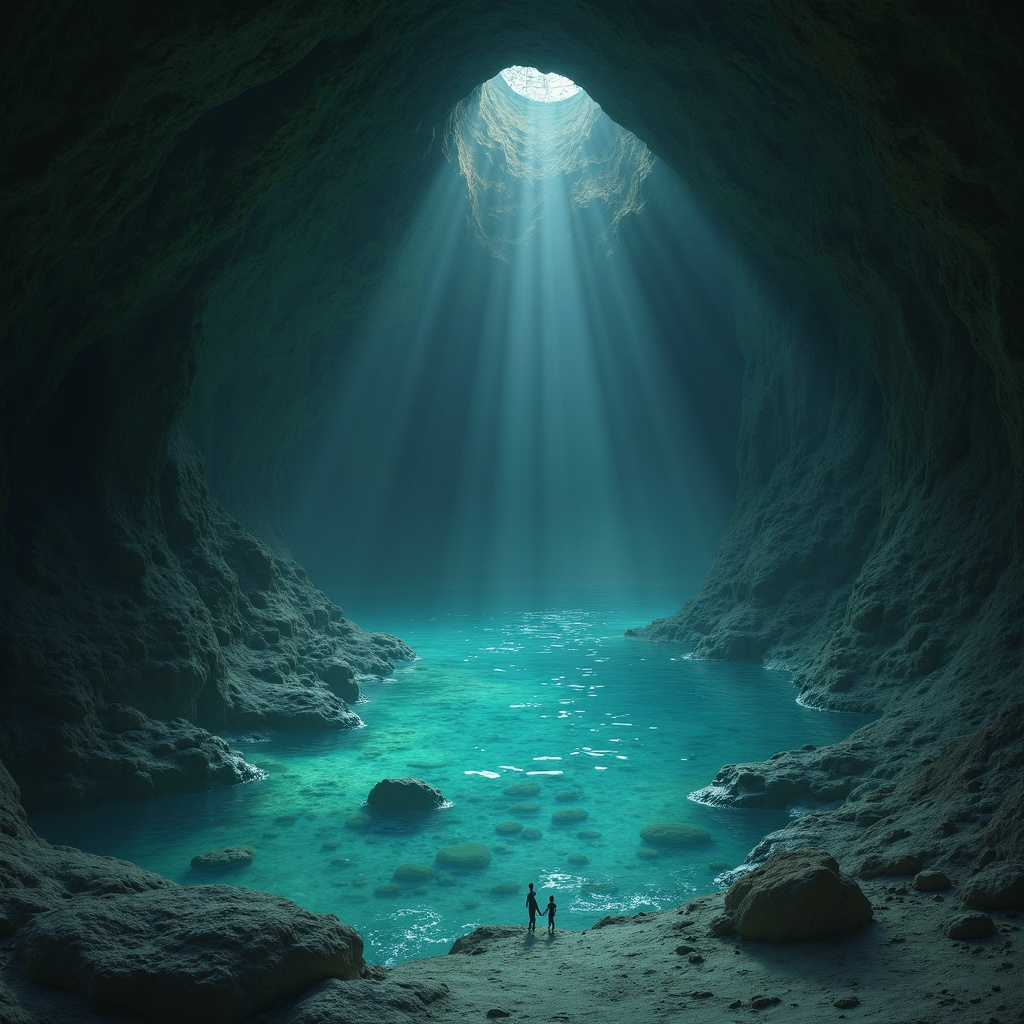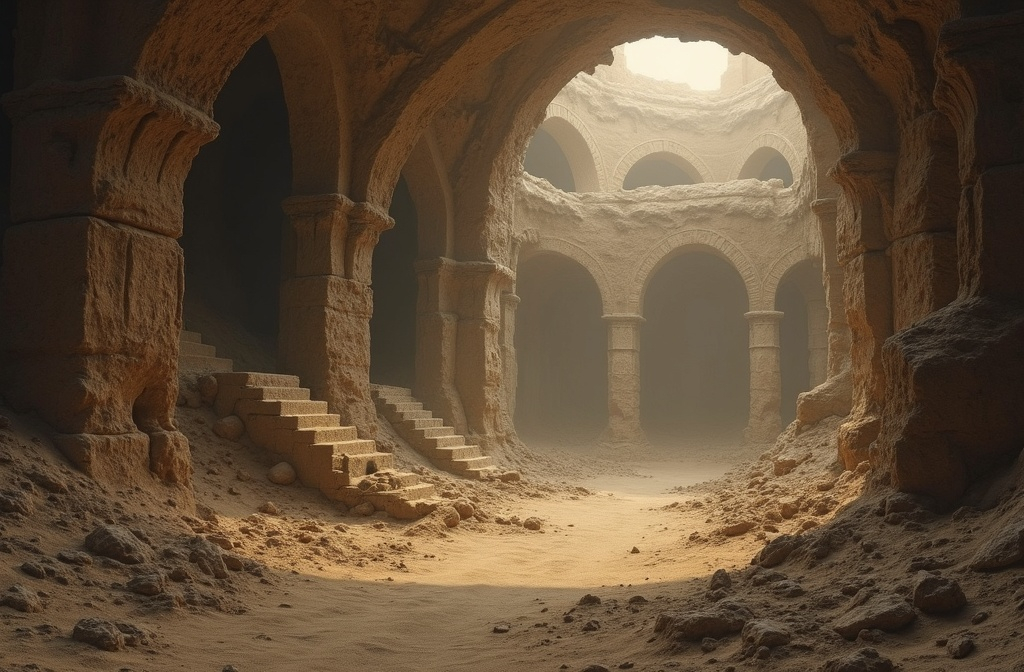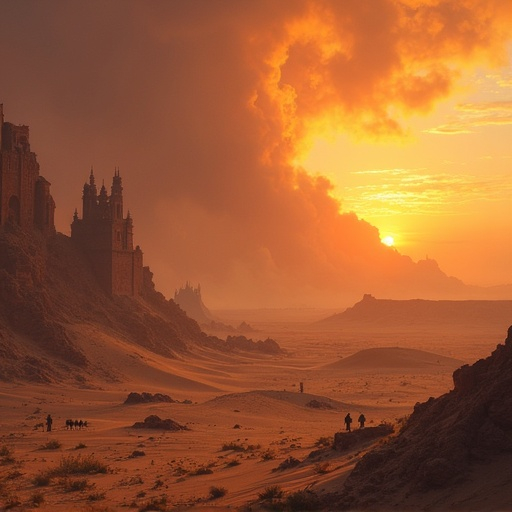
Overview
Once a great desert empire in the far south of Skazka, Kaijistan has been a memory for a thousand years—its banners dust, its laws forgotten, its cities devoured by dunes. What remains are whispers: jeweled towers, buried waterworks, and the lost capital Velkaria, the Diamond of Kaijistan.
Its descendants wander as fiercely independent tribes, guided by elders whose age grants both authority and caution. Outsiders are unwelcome; few are invited to sit by a Kaijistani fire without proving themselves beyond doubt. Their violet eyes—said to glow beneath the desert moon—mark the old blood still alive in the sands.
The tribes survive by herding, tracing secret paths between seasonal pastures, ruined cisterns, and hidden oases. They scavenge relics of the fallen empire to barter with daring foreigners, though most returns are pottery shards and sun-bleached bones. The land remembers, and punishes the greedy.
The lands of Kaijistan are often called The Forbidden Jewel, a word that conjures both wealth and peril. Treasure hunters, relic-seekers, and fortune-chasers regularly brave the endless sands, lured by the promise of lost riches from Velkaria and its sister cities. Few return with more than broken pottery and sun-bleached bones. Fewer still live to tell of the Sandsea of Zhal’Shaar, the cursed southern wastes where supernatural sandstorms rise without warning, swallowing entire caravans and grinding stone to powder. Tribal lore warns that the storms are the wrath of the empire itself, punishing those who dare seek its hidden diamond.
Tribes & Society
- Elders rule by consensus; disputes by barter, blood-price, or sudden starlit violence.
- Foreigners treated with deep suspicion; trust must be earned.
- Nomad routes link pastures, cisterns, and hidden oases.
Sites & Hazards
- Orishan Ruins — half-buried minarets, secret cisterns, catacombs of rite.
- Glass Dunes — black glass sheets where sorcerer-kings scarred the world.
- Sandsea of Zhal’Shaar — cursed storms that erase caravans.
“Find Velkaria and you find death or a diamond. Often both.”
— Caravan proverb
Trade & Survival
- Herding; careful water rights around aquifers (Kaelir).
- Relic scavenging; rare trades with outsiders for tools and salt.
- Route-keeping as lore: stars, winds, and ruin shadows.
Rumours & Hooks
- Eyeless spirits haunt the Aquifers of Kaelir, guarding the water.
- Velkaria lies beneath Zhal’Shaar, waiting for the worthy—or the damned.
- Violent tribal feuds rekindled by a newly found cistern map.
